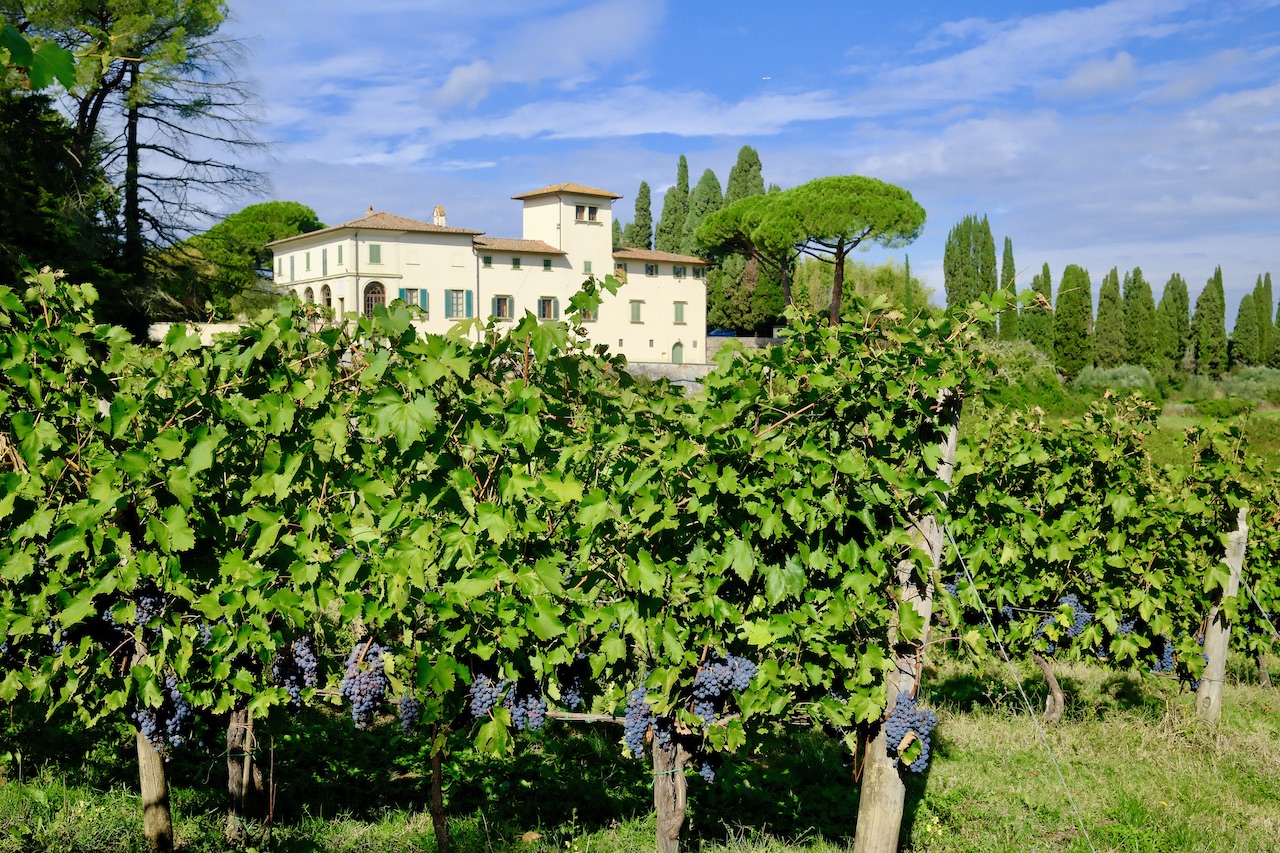Wine Tours in Tuscany - About Angie - +39 3333185705 - angie.chianti@gmail.com
One of the age-old debates in the world of wine is whether corks or screw caps are
better for sealing those precious bottles.
The question sometimes comes up during our Tuscany wine tours when guests notice
that all Chianti wine bottles have corks.
Why do some winemakers use corks while others prefer screw caps?
Let’s dive into the corks vs. screw caps debate and explore the pros and cons of each.
The Traditional Cork
While it may go back as far as ancient Roman times, the idea of using corks for wine
bottles caught on in Europe in the 17th century.
Cork is a natural substance from the bark of cork trees. In Italy, the best cork comes
from cork oak trees on the island of Sardinia.
The advantages of cork wine stoppers:
Aging potential: Due to its porous nature, cork allows a tiny amount of oxygen into the
bottle. This softens the tannins in red wine to produce a rounder wine over time.
That’s why corks are required for Chianti wine – – to ease the high tannin levels in the
Sangiovese grapes used to make it.
Tradition and Romance: Opening a bottle of wine sealed with a cork is a nod to the old-
world charm of winemaking.
Celebration: The unique sound of a cork popping adds to the ritual of wine enjoyment,
particularly for special occasions.
The disadvantages:
Cork taint: One of the biggest drawbacks of natural corks is the risk of cork taint, which
can make the wine smell and taste musty.
Variability: Natural cork quality can vary, leading to inconsistency in how wines age over
time.
Hard to open: Opening a corked bottle can sometimes be challenging, especially if the
cork has deteriorated or the corkscrew isn’t up to par.
The Modern Screw Cap
Screw caps were created in the 1950s. They’re made of aluminum, usually with a small
plastic liner on the inside. There’s a perception that screw caps are used for lower
quality wines, but that isn’t necessarily the case.
The pros for wine bottle screw caps:
Preservation: Screw caps provide an airtight seal, virtually eliminating the risk of cork
taint.
Consistency: With screw caps, you can expect the wine to taste the same in every
bottle.
Convenience: It’s very easy to open a bottle with a screw cap.
The cons:
Limited aging: While screw caps preserve wine well, they don’t allow for the gradual
aging that natural corks do.
Lack of tradition: Opening a screw cap bottle doesn’t have the same celebratory feel as
popping a cork.
Environmental concerns: Screw caps are much cheaper than cork, but they’re not
biodegradable.
The Verdict on wine corks vs screw caps:
Overall, corks are better if you’re looking for wines that evolve with time or for those that
enjoy the ceremony of popping a wine cork.
A screw cap works well for white and table wines with less structure, alcohol and
tannins that you would drink within a year.
Join us for more wine conversation plus tastings on our popular wine tour from Florence
to three Chianti wineries.





